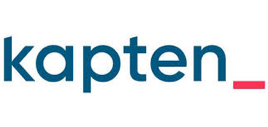Synthèse
The global VTC (Voiture de Transport avec Chauffeur) market, which experienced significant growth before the COVID-19 crisis, was impacted by the pandemic, leading to a downturn in household consumption of cab and VTC services in 2020. Despite this setback, the market continued to evolve, with a notable increase of over 100,000 TPPP vehicles—a 22% rise. The competitive landscape has seen increased rivalry not only between VTC services and traditional cabs but also within VTC platforms themselves and alternative transport modes. In Île-de-France, which represents the majority market share within France, the region accounted for 80% of total VTC activity in 2021, indicating a slight decrease from previous years as VTC services expand to other major French metropolises. The VTC sector continued to attract a predominantly young and affluent customer base and adapted to trends such as greener modes of transport. In terms of pricing, the minimum price for a VTC journey in 2023 rose to €7.65, with a typical journey costing €20, while platform commissions for drivers ranged from 15% to 25%. Despite the challenges of the COVID-19 crisis and regulatory changes, the VTC market is poised for future growth, particularly in regions outside Île-de-France and within the younger demographic.
Analyzing the Dynamics of Demand in the French VTC Market
In recent years, the French Voiture de Transport avec Chauffeur (VTC) market has experienced a surge in growth, indicative of the enhanced preference for private, app-based transportation services among locals, especially the youth and the more affluent. The appeal of services like Uber, Bolt, Heetch, and Kapten is conspicuous among the 25-34 age group, which utilizes these services at roughly two and a half times the rate of the general population. Notably, persons belonging to higher socio-professional categories exhibit about 40% more usage than their peers. Before the COVID-19 pandemic hit, the VTC market was flourishing with a market value reaching up to approximately between 750 and 850 million euros. However, the pandemic induced a significant downturn in 2020, with household consumption of cab and VTC services falling by 17%. Despite this, a recovery is observable in 2021, though the figures still remain below the pre-crisis level by about 2%.
The younger demographic is showing a marked preference for VTC services, with 18-24-year-olds exhibiting a tendency to use such services more frequently than older groups. For instance, 28% of individuals aged 18-24 used Uber’s services in the last three months compared to 20% for those aged 25-34.
The global VTC market has been growing at a notable rate, reaching a valuation of around 150 to 160 billion dollars in 2021 with expectations of continued growth. This upward trend reflects a keen global interest in app-based transportation, which France mirrors. However, the market is not just expanding, it's also evolving, seeing increased competition between the various VTC companies, and between VTC services and traditional cabs. This competition is fostering innovations and improvements across the board, leading to upscaling of services, price reductions, and technological advancements.
One crucial aspect influencing the purchasing decisions in the VTC sector is price sensitivity. The average cost of a VTC trip rings in at about 20 euros, somewhat lower than the average cab fare of 22 euros. Most of this cost – approximately 80% – is directed to the driver. However, different platforms have varied commission structures, with Uber taking around 25%, and other competitors like Heetch taking only about 15%. Moreover, seasonality affects the demand for VTC services, with the summer months, particularly July, often seeing less activity.
Leading Contenders in the VTC Landscape: A Synopsis of Market Giants
The ride-hailing sector, characterized by intense competition and service diversity, is home to several key players who have carved out substantial niches for themselves in the market. Below is an overview of the main companies that have made significant strides in the Voiture de Transport avec Chauffeur (VTC) arena.
- Uber: The Global Ride-Hail Juggernaut Uber, the world’s preeminent VTC service provider, offers a broad spectrum of vehicle choices to cater to varied customer needs. From luxury options like UberBERLINE to budget-friendly UberX and environmentally conscious offerings such as UberGREEN, Uber's extensive portfolio is designed to appeal to a wide audience. The company has even expanded its reach with services like UberEATS, underscoring its ambition to dominate not just ride-sharing but other commercial vertices as well.
- FreeNow (formerly Kapten): The European Challenger Initially established as Chauffeur Privé and later rebranded to Kapten, FreeNow is the brainchild of a strategic move by Daimler to take on its American competitor in the European landscape. This platform has a presence in significant French regions and is known for its customer-centric features like advance bookings, a loyalty program, and a suite of vehicle options including sedans and vans that highlight its user-friendly approach.
- Heetch: The Youth-Favored Night Rider Born in 2013, Heetch initially targeted a younger demographic with a model that diverged from traditional VTC services by employing non-professional drivers. Despite legislative hurdles in 2017 that forced a pivot in its business model, Heetch has made a commendable comeback and retains its popularity among young people and students, offering the additional convenience of booking cabs through its platform.
- LeCab: The Uniformed Fleet Innovator LeCab has distinguished itself with a standardized fleet consisting primarily of black Peugeot 508s and Mercedes Vianos, ensuring a consistent service experience. Apart from connecting passengers with drivers, LeCab extends a multitude of supplementary services, including driver training, vehicle rentals, and even a fixed rate for advance bookings. Its acquisition by SnapCar in 2019 marks a strategic consolidation in the sector.
- Bolt, Allocab, and Marcel: While not detailed as extensively as their counterparts, these services also contribute to the diversity and competitive dynamics within the French VTC market.
à la compréhension de ce marché
Détail du contenu
 Informations
Informations
- Nombre de pages : 30 pages
- Format : Version digitale et PDF
- Dernière mise à jour : 19/11/2021
 Sommaire et extraits
Sommaire et extraits
1 Market overview
1.1 Definition and scope of study
The term VTC stands for "Voiture de Transport avec Chauffeur" and refers to " operators who make one or more chauffeur-driven transport vehicles available to their customers, under conditions agreed in advance between the parties " (Article L 3122-1 of the French Transport Code).
Previously, the profession was called "Exploitation de voitures de tourisme avec chauffeur", but it changed its name following the Thévenoud law in 2014. It is part of the "Transport public particulier de personnes" (TPPP or T3P) segment.
VTCs offer services similar to those of cabs, enabling customers to travel from point A to point B in a car driven by a driver ; the differences between the two services lie in the status of the driver, the pricing of journeys, comfort or even the conditions under which the customer is picked up.
The VTC sector is very recent in France: the first mobile applications to put VTC drivers in contact with customers appeared in December 2011, notably with Uber France, the French subsidiary of the American company Uber. The arrival of these platforms in France has completely disrupted the transport market, particularly in major cities where cabs previously had a monopoly on T3P.
On a global scale, the average annual growth rate is +19%, with VTC sales expected to exceed US$150 billion by 2021. [Market Insights] France has seen growth in its VTC activity between 2016 and 2021. Nevertheless, the Covid19 crisis has impacted this growth and, in 2021, household consumption of cabs and VTCs has not returned to its pre-crisis level. [INSEE]
There are two points of attention in the sector, which could drive change in the future: the difference in status between cabs and VTCs (which regulations are gradually trying to regulate) and the social protection of self-employed workers working on collaborative platforms.
Last but not least, the trend in VTC offerings is towards multimodality (with the recent integration of Taxi services and the rental of scooters and bicycles) and greener vehicles.
 Liste des graphiques
Liste des graphiques
- Taille du marché du VTC en valeur et prévisions
- Evolution du chiffre d'affaires des transports de voyageurs par taxis
- Utilisation des services VTC d'Uber en fonction de la tranche d'âge
- Dernière utilisation d'Uber VTC pour les 18-34 ans
- Evolution de la consommation des ménages en taxi et VTC
Toutes nos études sont disponible en ligne et en PDF
Nous vous proposons de consulter un exemple de notre travail d'étude sur un autre marché !
Dernières actualités
Entreprises citées dans cette étude
Cette étude contient un panorama complet des entreprises du marché avec les derniers chiffres et actualités de chaque entreprise :
 Choisir cette étude c'est :
Choisir cette étude c'est :
Accéder à plus de 35 heures de travail
Nos études sont le résultat de plus de 35 heures de recherches et d'analyses. Utiliser nos études vous permet de consacrer plus de temps et de valeur ajoutée à vos projets.
Profiter de 6 années d'expérience et de plus de 1500 études sectorielles déjà produites
Notre expertise nous permet de produire des études complètes dans tous les secteurs, y compris des marchés de niche ou naissants.
Notre savoir-faire et notre méthodologie nous permet de produire des études avec un rapport qualité-prix unique
Accéder à plusieurs milliers d'articles et données payantes
Businesscoot a accès à l'ensemble de la presse économique payante ainsi qu'à des bases de données exclusives pour réaliser ses études de marché (+ 30 000 articles et sources privées).
Afin d'enrichir nos études, nos analystes utilisent également des indicateurs web (semrush, trends…) pour identifier les tendances sur un marché et les stratégies des entreprises. (Consulter nos sources payantes)
Un accompagnement garanti après votre achat
Une équipe dédiée au service après-vente, pour vous garantir un niveau de satisfaction élevé. (+33) 9 70 46 55 00
Un format digital pensé pour nos utilisateurs
Vous accédez à un PDF mais aussi à une version digitale pensée pour nos clients. Cette version vous permet d’accéder aux sources, aux données au format Excel et aux graphiques. Le contenu de l'étude peut ainsi être facilement récupéré et adapté pour vos supports.
 Nos offres :
Nos offres :
the VTC market | France
- Quels sont les chiffres sur la taille et la croissance du marché ?
- Quels leviers tirent la croissance du marché et leur évolution ?
- Quel est le positionnement des entreprises sur la chaine de valeur ?
- Comment se différencient les entreprises du marché ?
- Données issues de plusieurs dizaines de bases de données
Pack 5 études (-15%) France
- 5 études au prix de 75,6€HT par étude à choisir parmi nos 800 titres sur le catalogue France pendant 12 mois
- Conservez -15% sur les études supplémentaires achetées
- Choisissez le remboursement des crédits non consommés au terme des 12 mois (durée du pack)
Consultez les conditions du pack et de remboursement des crédits non consommés.





 BlaBlaCar, l'adolescent enfin rentable - 04/04/2024
BlaBlaCar, l'adolescent enfin rentable - 04/04/2024
 Uberteens, Uber étend son emprise dans les services - 22/05/2023
Uberteens, Uber étend son emprise dans les services - 22/05/2023
















